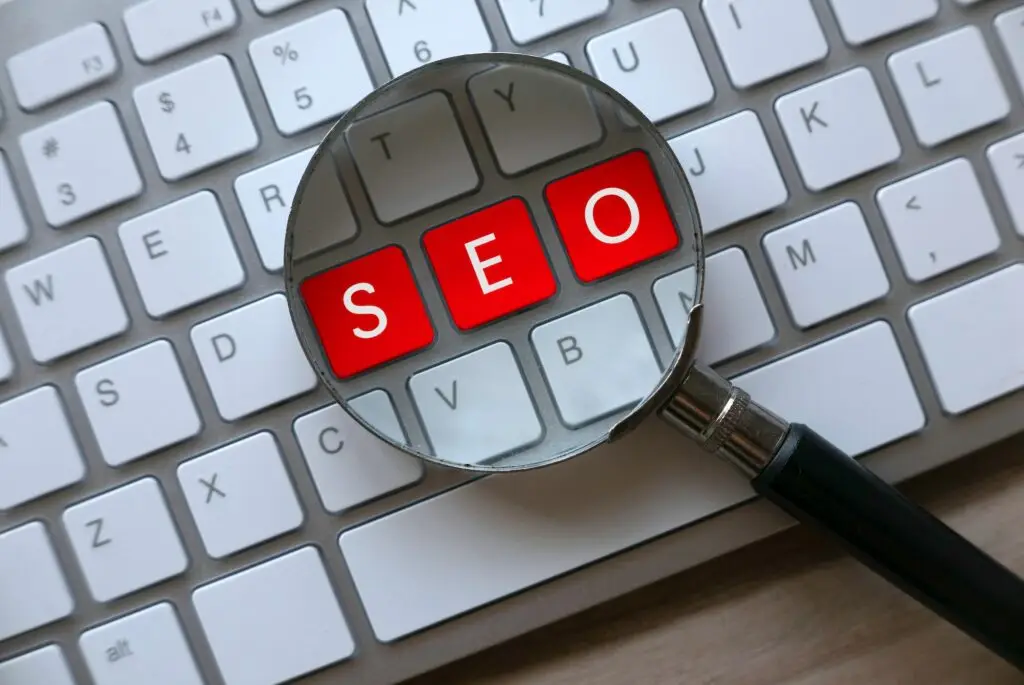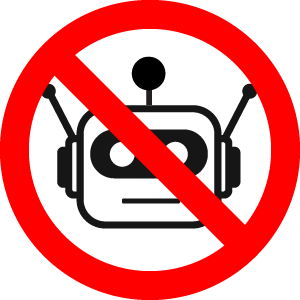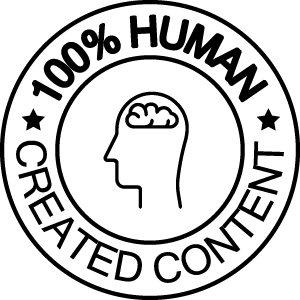Artificial Intelligence (AI) has managed to revolutionize the way we create content, but is it really revolutionizing it for the better? Turns out there are many reasons why AI is bad for content creation.
Have you, or are you considering using AI to create content? Or perhaps are you worried that everyone using AI to mass produce blog posts will out-SEO you?
In this article, I’m going to cover the negative impacts of using AI to create content and, as a result, discover why real human-made words are not only better for the consumer – but for humanity.

Lack of Creativity, Originality & Ethics
One of the biggest drawbacks of using AI to create content is the lack of creativity and originality. AI language models such as ChatGPT can only be as original and creative as the data it is fed, which is just scraped off of the internet.
This means that all AI-generated content is just regurgitated information scraped off of other people’s input.
This is an issue for a couple of reasons. Firstly, it’s arguably not ethical and verges severe plagiarism. Ownership and copyright go out the window, as the responsibility of AI creators and their systems has been left unchecked so far with a lack of regulations.
Examples of this can be seen in lawsuits such as this one, where Stability AI is straight up just copying off of human creators and claiming it as original. However, in this instance, you could literally see the GettyImages logo faded inside of the photo.
Additionally, for blog posts and other written content, the regurgitation of AI content completely neglects the author’s voice. AI-generated content lacks the unique voice and perspective that human brings to their work, which I discuss a lot more in my article: “7 Reasons Why I Prefer To Read Human-Created Content (And Why It Matters)“
This results in extremely homogenized content, where after a while everything begins to look and sound the same.
Just imagine a website where all the articles are written by AI; the content might be factually accurate, but it’s going to lack all the depth and nuance that human reporters bring to their stories because it lacks experience and emotional intelligence.
Perpetuation of Harmful Stereotypes and Biases
AI-generated content lacks cultural nuance and sensitivity, and no matter how hard OpenAI claims they have programmed ChatGPT to not be biased, it still is.
AI is trained on “white male data“, which makes it implicitly biased, regardless of what OpenAI claims. How can a model like that accurately portray the experiences and emotions of people of color, women, LGBTQ+ individuals, and immigrants?

It cannot. And this lack of cultural sensitivity is becoming increasingly problematic when AI-generated content is used to discuss issues deeply tied to these cultural identities and experiences.
The same way I don’t want to read about the trans-black experience in America written by a white man, I wouldn’t want to read it from an AI trained on datasets of white men, without empathy and emotional intelligence to even understand what it is actually writing about.
This means that if you’re using AI to generate content, even if the content isn’t technically related to anything cultural – you’re lacking the perspective of a human experience.
For example, a disabled man who grew up in extreme poverty in a third-world country is going to have a different take on a vast array of topics compared to a Scandinavian woman with three kids.
This isn’t necessarily just about race and culture — it’s about covering the diverse perspectives of the entire human race in general. AI completely neglects and removes this aspect of content consumption.
Misinformation & Error
Another massive issue with relying too much on AI-generated content is that it is often simply not correct. For one, AI language models like ChatGPT are restricted to information from before September 2021.
Additionally, ChatGPT simply scrapes the internet and bases its information on what it assumes is correct. This means that it can often be wrong and have inaccuracies. To find an example, I decided to ask ChatGPT when the Pennsylvania hunting season is.

I then fact-checked on the official Pennsylvania government web pages and hunter blogs and it turns out almost every single date was wrong or inaccurate.
So imagine you’re a Pennsylvania hunter, and you decide to google the dates and find a blog post that relied entirely on ChatGPT.
You now have the wrong dates.
Using AI Generated Content is Terrible SEO
Additionally, if you’re trying to build a website or want your content to rank high on Google—relying on AI to do so can severely shoot you in the foot. Here are a couple of reasons why:
Lack of Relevance and Quality:
AI-generated content may lack the depth and relevance that human-created content can provide. Search engines prioritize high-quality and relevant content that provides value to users. If AI-generated content lacks these qualities, it may not rank well in search results, leading to poor SEO performance.
Duplication and Plagiarism:
AI-generated content may be prone to duplication and plagiarism, which usually has a very negative impact on SEO. Search engines penalize websites that publish duplicate or plagiarized content which then results in lower search rankings and decreased visibility.
Keyword Stuffing and Over-Optimization:
AI-generated content will typically keyword stuff its content for the sake of “over-optimization” – and that has a really negative impact on SEO. Google penalizes websites that engage in this form of keyword stuffing which results in lower search rankings and decreased visibility.
Poor User Engagement Metrics:
Essentially, AI-written content is boring to read; it’s homogeneous and stale, like eating chips that have been sitting out for several days. If the content isn’t engaging, people simply won’t engage with it, resulting in high bounce rates or low time on the page. Search engines take these metrics into account when ranking sites, which is why it will negatively impact SEO.

Implications for the Job Market
A study by McKinsey predicts that at least 400 million people worldwide will lose their job as a result of AI, and that is the best-case scenario. Worst case, 800 million people could be affected.
To put that in perspective, 800 million is 35% of the entire world’s workforce.
The people who are most likely to lose their jobs due to automation are also those from lower-income brackets, since these jobs tend to be easiest for a robot or AI system to handle — regardless of how terribly it is done.
By relying too much on AI-generated content, you’re also than supporting a more widespread approach that can seriously harm the future job market for close to a billion people.
The Research Is Clear: Using AI to Create Content is BAD
The reality might be dim, but it is the reality all the same: AI-generated content does a significant amount of damage to both content creators and consumers. It spreads misinformation, introduces bias, and lowers the overall quality of content.
It is clear that relying on AI-produced content is harmful not only to yourself and your content but can also have a severe negative impact on the future in general.

Regardless, in my opinion, I believe that all forms of media that use AI should, by law, be required to put a disclaimer on their content that clearly states AI was used in the creation of that content.
For example, Buzzfeed, which just laid off 12% of its employees to AI, should clearly state that its main content creators are now dead strings of code.
However, it doesn’t seem like that is going to happen any time soon. So as an alternative, I have created a way for content creators to easily state that their content is 100% human-made by putting any of our free No-Ai badges on their page.
The icon then links to this statement, and their content is quality checked by us to ensure that no AI was part of the process.
Be in the know. Support humans. Say No to AI.
THIS ARTICLE WAS WRITTEN WITHOUT THE ASSISTANCE OF ARTIFICIAL INTELLIGENCE.
